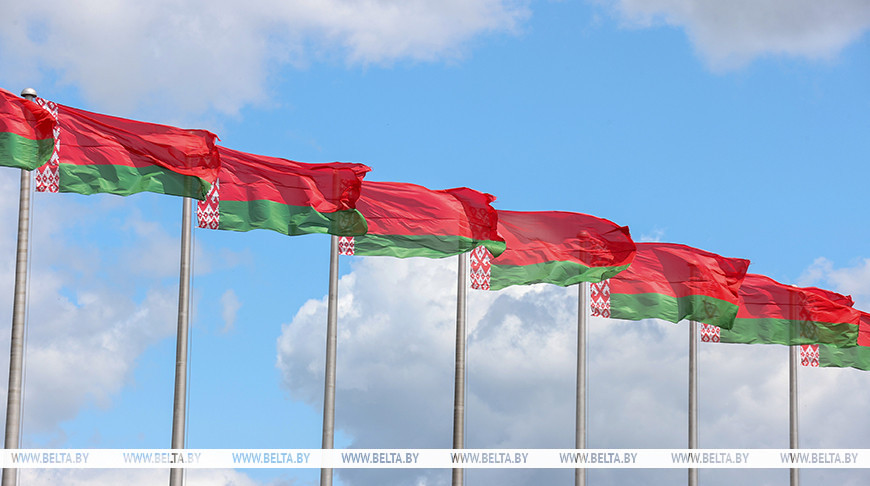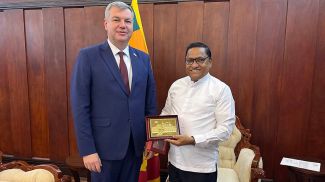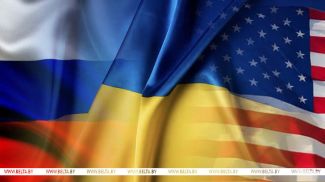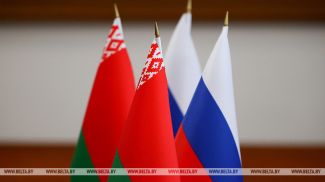
An archive photo
MOSCOW, 25 November (BelTA) - Belarus and Russia will prioritize foreign policy and economic cooperation with those countries that genuinely respect the principles of sovereign equality and non-interference in internal affairs, Belarusian Foreign Affairs Minister Maxim Ryzhenkov told the media following a joint meeting of the collegiums of the Ministries of Foreign Affairs of Belarus and Russia in Moscow on 25 November, BelTA has learned.
He noted: “We have reached a strategic understanding that our foreign policy and economic cooperation will continue to prioritize countries and associations that respect the principles of sovereign equality and non-interference in other countries' internal affairs, as well as faithfully upholding the UN Charter and international law.”
In this context, Maxim Ryzhenkov thanked Russian colleagues for their active support in the process of Belarus joining progressive and influential formats such as the SCO and BRICS, for their sincere involvement in the work of the Minsk International Conference on Eurasian Security, and for their contribution to drafting the landmark Charter of Diversity and Multipolarity in the 21st Century.
“We will continue close cooperation in promoting the Charter, which is attracting growing interest among our partners, especially in the Eurasian region,” the minister emphasized.
He said that the Belarusian side expects to continue fruitful cooperation within the platforms of the global majority, with mutual assistance in advancing national interests in the countries of the Global South, including in specific areas discussed today: transport and logistics, finance, and effective resistance to sanctions pressure.
On 24-25 November, at the invitation of Russian Foreign Minister Sergey Lavrov, Maxim Ryzhenkov is visiting Moscow on a working trip to participate in the annual joint meeting of the collegiums of the Ministries of Foreign Affairs of Belarus and Russia. These joint meetings have been held annually since 2000, alternately in Belarus and Russia, and serve as an effective mechanism for synchronizing the efforts of the two countries on the international stage. This time, the agenda included reviewing interim results of the implementation of decisions from the previous meeting and the program of coordinated foreign policy actions of the Union State for 2024-2026, along with a number of other important issues.













